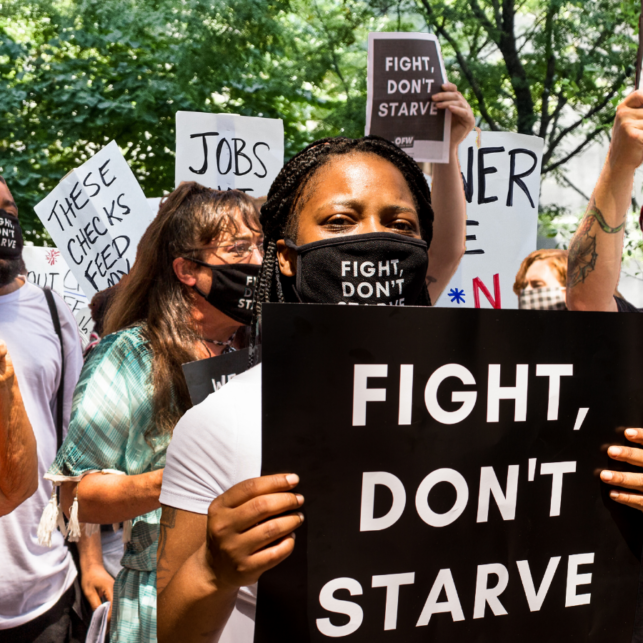State Unemployment Insurance Policy Hub
Resources to improve state unemployment insurance programs and strengthen economic security for workers and their families.

Welcome to the State Unemployment Insurance Policy Hub
We created this content as a guide for state advocates. The State Unemployment Insurance Policy Hub offers resources to improve state unemployment insurance (UI) programs and strengthen economic security for workers and their families.
To learn more about how to improve your state’s UI program, send us a message using the form on our Contact NELP page. We welcome feedback on what resources are helpful as we develop additional content.
You can also reach out to us to join the NELP Connect UI Advocates Community, which includes a discussion board, listserv, and resource library for advocates, researchers, and policymakers who are promoting UI reform in states across the country.
Policy Advocacy Briefs to Improve UI in Your State
Learn more about key unemployment insurance policy topics and find helpful resources to improve UI in your state. For example, learn how to make more workers eligible for UI in your state in the policy advocacy brief Monetary Eligibility Requirements.
Each brief provides key definitions, an overview of the topic, federal requirements and guidance, recommendations for reforming current state policies, and a summary of research findings and arguments to support reform efforts. The policy advocacy briefs also include resources for additional reading, as well as easy-to-follow information on how to find relevant data about UI in your state.
- Benefit Amounts: Increase UI benefits so workers can survive on them.
- Benefit Duration: Guarantee enough weeks of UI benefits so workers have time to find good jobs.
- Dependent Allowance: Increase UI benefits for caregivers and their families.
- Excluded Worker Programs: Ensure equitable access to UI for all jobless workers.
- Financing and Solvency: Ensure adequate funding for state UI systems.
- Good Cause Quits: Provide UI benefits to workers compelled to quit their job.
- ID Verification: Remove burdensome identity (ID) verification procedures.
- Monetary Eligibility: Ensure all workers, including underpaid and part-time workers, are eligible for UI.
- Overpayments and Waivers: Ensure workers are not unfairly forced to pay back long-spent UI benefits.
- Partial Benefits: Support part-time workers by providing partial UI benefits.
- Suitable Work: Ensure workers counting on UI benefits are not forced into underpaid jobs.
- Unemployment Insurance for Striking Workers: Support the right to strike.
- Work Search Requirements: Minimize unnecessary and burdensome state work search requirements for UI.
Model State UI Policies
Use these state legislative models to draft bill language to introduce in the legislature. The process of drafting legislation can vary depending on state-specific legal and policy issues. For example, your state may already have a law addressing this topic. In that case, the model language would have to be adapted to fit current law and ensure you are expanding, not restricting, already established rights. Your state may also have a specific format for legislative text.
We recommend first reading the policy advocacy brief on the related topic—which provides an overview of the issue, examples of what states are currently doing in the area, resources to support UI policy reform, and more.
We are grateful to our partners and allies who helped us develop this model language.
- Model State Legislation: Dependent Allowance: Increase UI benefits for caregivers and their families.
- Model State Legislation: Good Cause Quits: Expanding good cause quits increases the percentage of unemployed workers who can access UI.
- Model State Legislation: Monetary Eligibility: Ensure equitable access to unemployment insurance (UI) for all jobless workers.
- Model State Legislation: Overpayment Waivers: Ensure workers are not unfairly forced to pay back long-spent UI benefits.



